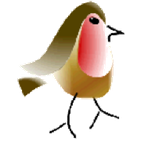Earlier this year, I was curiously hearing lots of ‘chatter’ between many of my students talking about ‘attack from the top right with more giants but don’t forget your healers’; or ‘you need to change your base design to have the castle closer to your town hall’.
I found out that they were referring to an online game called ‘Clash of Clans’, which is a sort of advanced version of the ‘tower defence’ kind of games but in this game the player is both a defender and an attacker. Another ‘twist’ to this classic game genre is that the whole experience is online and is played normally on mobile devices such as tablets and smart phones running modern mobile operating systems. A final ‘twist’ is the fact that players can ‘join’ clans that they can establish and then go to ‘war’ with other clans. Sometimes it’s easier to see rather than explain.
[Take it away Evan & Dad]
[Clan Wars explained in 60 seconds]
However, what was most curious to me was the fact that the children were (i) engaged and (ii) teaching and learning from each other.
My own curiosity peaked, I recruited my daughter to help induct me into the game to see if there was a way that I could recruit that natural enthusiasm in our teaching and learning at school (I’m sneaky like that as an educator). What I found out was that in fact this is a great game, both in terms of playing, design, and even the ‘sneaky’ way the game designers have monetised the game with just enough incentive to feel that if you want, you need pay no money, but you can advance faster if you pay real money to purchase in-game resources such as ‘elixir’ (used to train attacking troops) or ‘gold’ (used to build defensive structures and other buildings for your village).
However, with all this acquiring and spending of resources, I realised that this game is a natural analogy for understanding economics. I am subscribing to ‘Freakonomics’ version of economics, which tries to understand economics of ‘anything’ in terms of supply and demand.
The initial conversations that I was listening to in the break periods were the children ultimately explaining to each other, how to rationalise the game by spending and acquiring the in game resources. The limitation (for 99% of them) was that their parents had not allowed in-app purchase of resources with ‘real’ money, so they were learning rapidly how to spend their in-game resources (gold and elixir as well as ‘gems’) appropriately.
In other words, I saw/see an opportunity to use the game as an avenue to ‘bridge’ into the world of economics. A classic ‘multiple intelligence’ approach to education, where the dispositions or natural inclinations of the children (their self chosen interest in the game) is used to help out in areas that they are not so disposed towards (I mean honestly, who is genuinely excited in ‘economics’ on first blush in secondary school?).
Since the end of April, we have formed a ‘clan’ or team of players that included the class members who were already playing and made a class assignment out of it. I’m probably learning more than the children, but I believe that they are picking up on things too.
First and foremost we spent some time discussing how the in-game currencies could translate into real world equivalents for organisations that are doing business. The organisations could be commercial businesses, not for profit organisations, a city, a country or a region and so on. It’s easy to see how a teacher could ‘kill’ the enthusiasm of a topic by making it too academic. In the end, the thing the children want to do, is to play. So we have also had a component where we’ve been playing together as a team. This is the part where I’ve been learning the most.
Obviously part of my own education, has been simply learning how to play. Fortunately there are a number of resources available both online and also within the ‘clan’. My pupils have been only too generous in helping me how to understand how to play (thanks guys).
However, the main thing I’m learning in this context, is the way that the children are learning in an increasingly connected world and outside of the traditional channels that us digital immigrants have been brought up on.
In the actual game, there is a ‘chat’ function that allows players to communicate with short SMS or Twitter style chats. These messages can go out to the whole of the Clash of Clans community, or it can stay just within the Clan. About 100 of the last ‘chats’ are available for anyone to look at and read. This is where I spend a lot of time learning how the pupils (and non pupils who have joined the Clan) are interacting with each other. Our own clan now has members from Tasmania, Russia and the Middle East as well as us here in Fiji. There are various ‘clusters’ where the Fiji members know each other mainly from school. There are non school members who were previously members of a different clan and have since left that clan, and joined ours. The Russians are chatting away but most of us cannot read the cyrillic let alone understand the Russian (but some of our pupils are actually learning). From what I can make out, there are about 4 ‘adults’ as part of this group including myself.
The natural groups that know each other ‘face-to-face’ tend to use the game ‘chat’ channel as yet another way of chatting to each other about pretty much anything including organising meeting up to do social things outside of school. They continue to use mobiles, as well as Skype and seem to think nothing of using any, or all these channels as it suits their purpose (sometimes more than one channel at the same time!).
I am seeing (the wonderful) intense curiosity by the pupil players from outside our own school. They want to know more about members of ‘their’ clan even if they live in completely different countries. This raises interesting (and perhaps concern for) scenarios where the children are keen to interact with all members of the clan including the professed ‘adults’. One of the pupils from a school in Tasmania professed to being in admiration of our project mainly because his own teachers thought playing ‘Clash of Clans’ was ‘bad’ and even ‘evil’. This is, I feel, a bit sad in that his teachers are obviously making snap judgements (all online gaming, or ‘video gaming’ is bad) and not recognising ways of connecting with their children other than in front of a white or black board.
How does this translate into effective teaching and learning for those of us engaged in this in an educational context?
For the moment, I have no stunning insights (and maybe there are none) but I do have observations that have come out of this foray into the gaming world as an educational tool.
- The rate of learning in a context that they are very engaged in, is VERY fast.
- Children are fearless in using these alternative communciation channels or the willingness to join up as virtual teams. I myself felt very self conscious the first time I did an 'online' attack. Or children simply charge ahead without the natural 'caution' that most of my generation appear to have.
- Despite that, what the chidren lack is the abllity to see parallels or analogies outside of the immediate game context. This maybe an experiential thing that us 'adults' have but the children are still struggling to see how to take this learning opportunity outside of the game environment.
- Educators of children as digital natives, are missing out big time, if they do not acknoweldge or recognise these kind of modern engagements that children are engaged in: both for learning opportunities and; as a relevant channel of communication that the children are using (amongst others).
In the meantime, the gaming continues – ‘Attack!'


